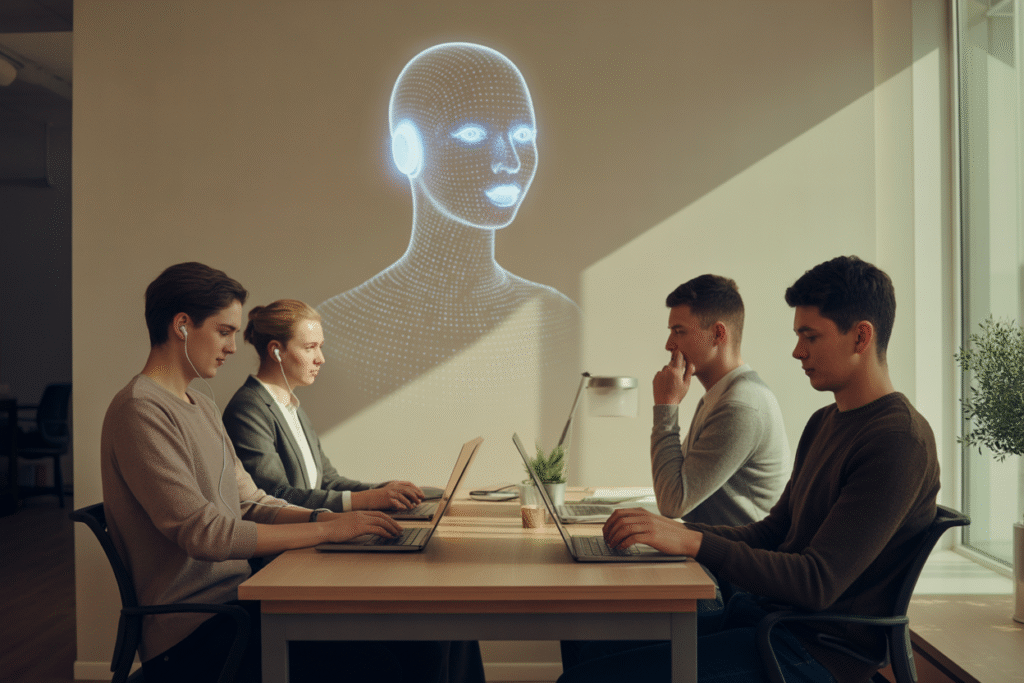From AI vans scanning London faces to Sam Altman’s dot-com warning—here’s why your privacy and paycheck could hinge on the next policy vote.
AI is no longer knocking on our door—it’s already inside, scanning faces, crunching data, and sparking fierce debates from London streets to Silicon Valley boardrooms. In just the past three hours, headlines about AI surveillance vans, dot-com-level hype, and political conspiracy theories have exploded online. This article unpacks the three biggest stories, weighs the risks, and offers a roadmap for keeping both privacy and progress alive.
Rolling Eyes on the Street
Imagine a quiet London street where a plain white van idles at the curb. Inside, banks of cameras and AI software scan every passing face in real time, matching them against police watchlists. That’s not science fiction—it’s happening right now. The UK Home Office has quietly expanded its fleet of AI surveillance vans, and the backlash is fierce. Privacy advocates call it a slide toward a total surveillance society, while police insist it’s a targeted tool to catch violent offenders. Who’s right? Let’s dig into the details.
Each van is equipped with live facial recognition (LFR) technology that measures key facial landmarks—distance between eyes, jawline shape, and more—in milliseconds. If a face matches a suspect on the watchlist, officers inside receive an instant alert. The vans have already been deployed in London and Wales, leading to hundreds of arrests, including sex offenders who violated court orders. Supporters argue the tech is accurate, unbiased, and deletes innocent people’s data within minutes.
Critics aren’t buying it. Big Brother Watch points to past wrongful identifications and warns that the technology normalizes mass surveillance. Labour peers have called the rollout “unlawful,” and a legal challenge is brewing. The government counters that every deployment is proportionate, with public signage and post-operation data deletion. Still, the debate rages: is this smart policing or the first step toward an Orwellian state?
Dot-Com Déjà Vu
Sam Altman just dropped a bombshell that’s ricocheting through Silicon Valley. The OpenAI CEO compared today’s AI investment frenzy to the late-1990s dot-com bubble—yes, the one that vaporized trillions when it burst. Speaking candidly, Altman admitted investors are “overexcited” about AI’s transformative potential, even as he insists the underlying promise is real. Translation: we might be inflating a bubble on top of a breakthrough.
The numbers are staggering. OpenAI is reportedly exploring a $500 billion stock sale, while data-center spending rivals the infrastructure boom of the early internet era. Altman’s warning? Bubbles start with a “kernel of truth” that speculators amplify. In the ’90s, it was e-commerce; today, it’s generative AI. The risk is that hype outpaces delivery, leading to a crash that could chill innovation and vaporize jobs.
Yet Altman remains bullish long-term. He sees parallels to semiconductors and cloud computing—industries that survived their own boom-bust cycles and emerged stronger. Skeptics at Bridgewater and Apollo counter that current valuations already exceed dot-com peaks, making a correction inevitable. The wildcard is whether AI can deliver productivity gains fast enough to justify the price tags. If not, we may relive 2000’s hangover, complete with pink slips and empty server farms.
Alligator Alcatraz & the Panopticon
Scroll through social media and you’ll find a new conspiracy theory gaining traction: the “deep state” is letting Trump build sprawling detention centers—nicknamed “Alligator Alcatraz”—paired with an ultimate AI surveillance grid. The twist? Once Democrats regain power, the theory claims, the same infrastructure could be flipped against everyday Americans. Far-fetched? Maybe. But the post is racking up shares and heated replies.
The narrative taps into real anxieties. AI-enhanced monitoring tools—predictive policing, facial recognition, mass data collection—already exist and have been misused before. Critics fear today’s “border security” tech could morph into tomorrow’s tool for political control. Supporters counter that robust oversight and clear legal boundaries can prevent abuse. The debate boils down to a timeless question: who watches the watchers?
What makes this theory sticky is its plausibility. History offers plenty of examples—COINTELPRO, NSA bulk surveillance—where security tools were turned on citizens. Add partisan polarization and you get a perfect storm of fear and speculation. Whether you see it as paranoid fiction or prudent caution, the conversation underscores how AI and politics are becoming inseparable.
Guarding the Guardians
So how do we keep the promise of AI without sliding into dystopia? The answer lies in smart regulation, transparent oversight, and public engagement. First, lawmakers need clear rules on data retention, algorithmic bias testing, and citizen consent. The UK’s current consultation on AI surveillance safeguards is a start, but critics say it lacks teeth. Without enforceable penalties, guidelines become suggestions.
Second, oversight must be independent and well-funded. Think civilian review boards with technologists, ethicists, and community representatives who can audit deployments in real time. Third, companies should publish transparency reports detailing false-positive rates, demographic impacts, and data-sharing agreements. Sunlight, as they say, is the best disinfectant.
Finally, citizens have a role. Engage in local consultations, support digital-rights nonprofits, and vote for candidates who prioritize privacy. AI isn’t going away, but its trajectory is still ours to shape. The question isn’t whether we use these tools—it’s how we use them responsibly.
Your Move, Citizen
The next time you walk past a white van idling on the corner, ask yourself: is it just a van, or a glimpse of the future? AI surveillance, investment bubbles, and political power plays are converging faster than most of us realize. The choices we make today—about regulation, oversight, and public engagement—will echo for decades.
Stay informed, stay skeptical, and don’t be afraid to speak up. The conversation needs your voice. Share this article, tag a friend, and let’s keep the debate alive. After all, the best antidote to dystopia is an informed public ready to act.


